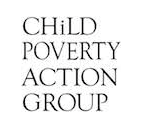
A welfare system that is hard to negotiate for those in need is a welfare system that is fundamentally flawed. Findings of a recent study by Child Poverty Action Group (CPAG) and associates show that more advocacy is needed at the coalface for those in need of financial support, especially for families with children who have disabilities and chronic illness.
Barriers to support: Uptake of the Child Disability Allowance in Otara is a new report being released by CPAG on Monday 21 November, and is co-authored by CPAG’s co-convenor Alan Johnson and researcher Jessica Suri of Otara Health. The launch will be held at 11:30am at the Otara Music Arts Centre, Corner Newbury Street and Bairds Road, Otara Town Centre.
The report follows on from the 2015 CPAG report It shouldn’t be this hard: children, poverty and disability which highlighted that the Child Disability Allowance (CDA) is under-paid and difficult to access for some families in need. Barriers to support reports findings from a survey of more than 1000 households in the south Auckland suburb of Otara, and was undertaken by a partnership of CPAG, Disability Connect and Otara Health Charitable Trust. The survey looked at the extent of children with disabilities or chronic illness in Otara households and whether or not these households were gaining their CDA entitlements.
CPAG’s last report showed that more than 11,000 children in New Zealand were missing out on the CDA because of Government policies tightening criteria and because the allowance was largely unpublicised. From the sample recently surveyed CPAG further highlighted the systemic barriers to support which are persistent and troubling aspects of our welfare policy, that must be removed.
The Barriers to support report includes an overview of and analysis of Ministry of Social Development (MSD) payment rates of the CDA across Auckland and New Zealand, and the levels of access to the allowance being offered to Otara families with disabled or ill children.
An additional aim of this project was to assist Otara families with disabled children who are not receiving their CDA entitlements to gain these payments.
Speakers at the launch include CPAG’s Alan Johnson, co-author Jessica Suri, John Coffey, general manager of Otara Health and Lisa Martin, president and CEO of Disability Connect.





Great work again CPAG…but just so you know, the Misery of Health Disability Support Services DO have programs specifically targeted at Maori….http://www.health.govt.nz/our-work/disability-services/maori-disability-support-services and Pasifika…http://www.health.govt.nz/our-work/disability-services/pasifika-disability-support-services communities.
Their brief? “Services for Pasifika disabled people
The Ministry of Health is committed to working with the health and disability sector to improve Pacific peoples’ health outcomes and reduce inequalities experienced by Pacific peoples.
The Ministry of Health funds a range of disability support services for people (mostly aged under 65 years) who have been assessed as having a physical, intellectual or sensory disability (or combination of these) that is likely to continue for a minimum of 6 months; resulting in a reduction of independent function; and that require ongoing support. Some of these services are offered by Pasifika providers or other organisations offering services specifically for Pasifika disabled people.”
and….”Services for Māori
The Treaty of Waitangi is New Zealand’s founding document and the Government acknowledges its obligations as a Treaty partner. The Māori philosophy towards health is based on a wellness or holistic health model. The Ministry of Health recognises that services for Māori should be based on Māori thinking and behaviour and recognises Māori ways of healing, care, and rehabilitation.
The Ministry of Health funds a range of disability support services for people (mostly aged under 65 years) who have been assessed as having a physical, intellectual or sensory disability (or combination of these) that is likely to continue for a minimum of 6 months; resulting in a reduction of independent function; and that require ongoing support. Some of these services are offered by Māori providers or other organisations offering services specifically for Māori.
Several key documents set out the specific needs and requirements of Māori who use health services.
Guidelines for Cultural Assessment
He Korowai Oranga: Māori Health Strategy
Whakatātaka: Māori Health Action Plan 2006–2011
Many organisations are contracted by the Ministry of Health to provide services for disabled Māori. For more information refer to our Māori Health Provider Directory.”
The fact that these well funded ‘services’ are failing to deliver comes as no surprise. There are far too many well fed and well dressed so-called advocates beetling around in their nice government funded vehicles supposedly delivering ‘services’ to their respective communities.
Snouts in the trough.
Comments are closed.